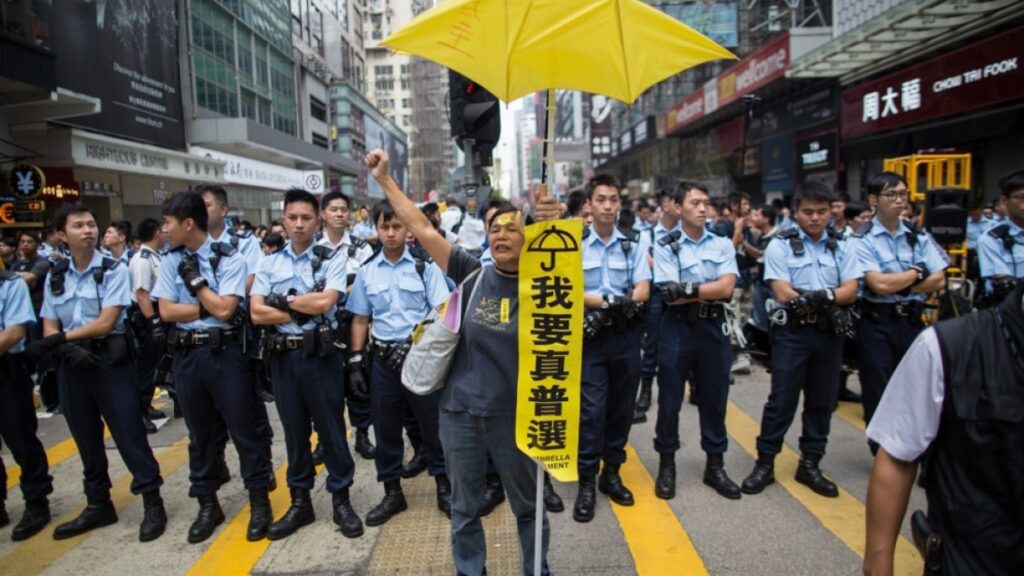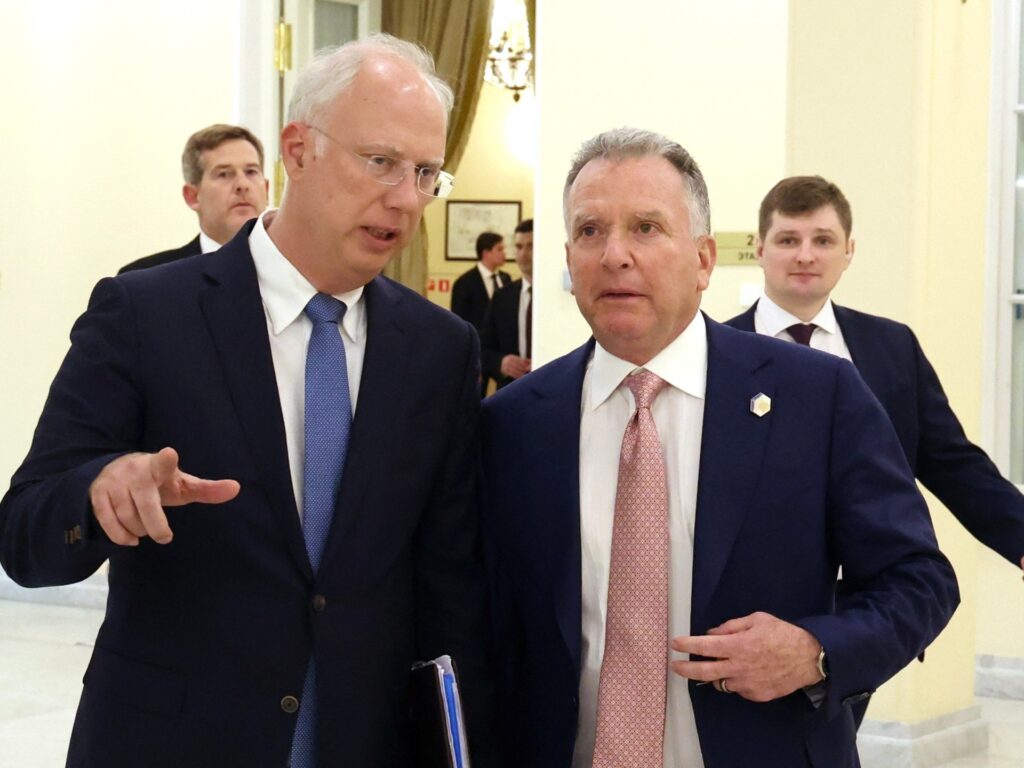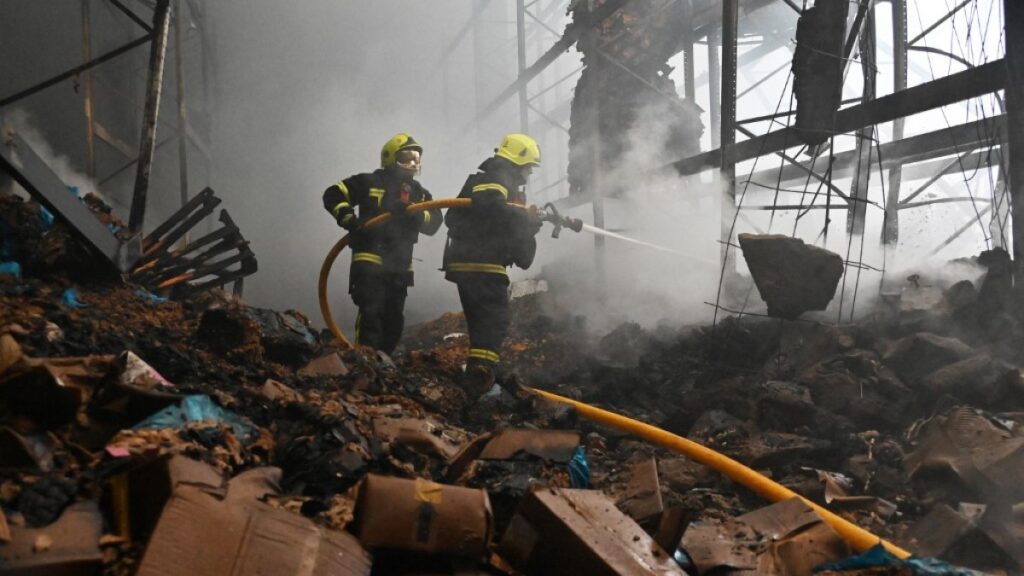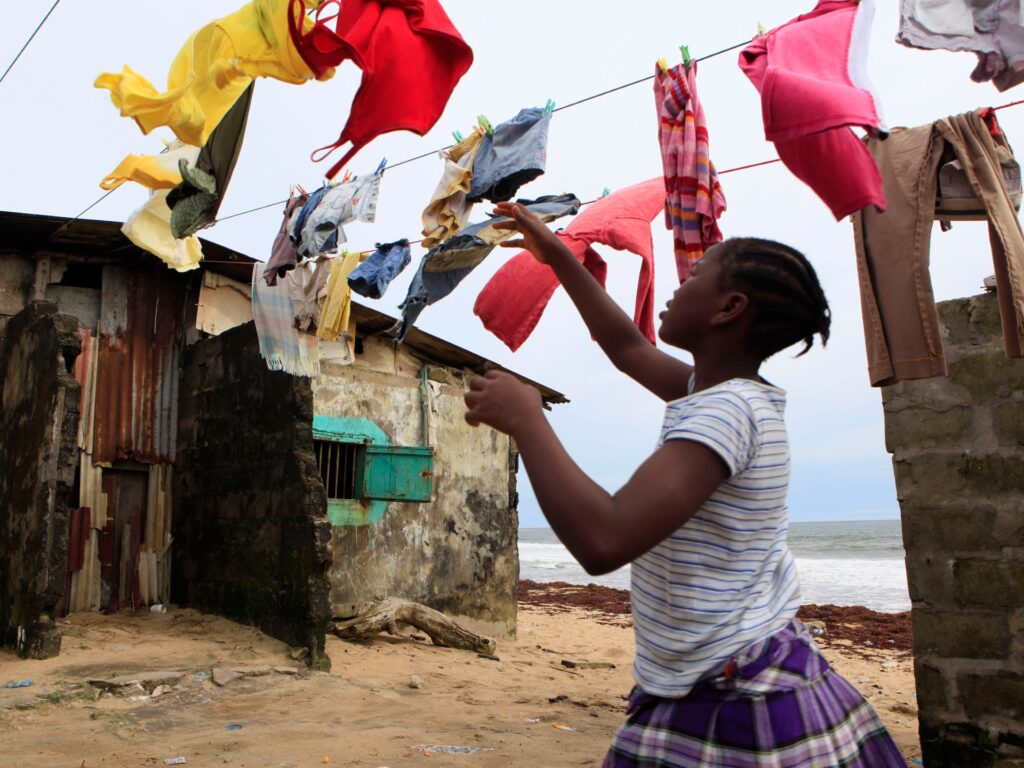Millions displaced as Sudan war enters third year

As Sudan’s civil war enters its third year, the conflict between the army and the paramilitary Rapid Support Forces (RSF) has displaced approximately 13 million people, according to the United Nations. “The conflict has provoked the displacement of 13 million people, including 8.6 million internally displaced people and 3.8 million refugees,” said Abdourahouf Gnon-Konde of the UN Refugee Agency in an interview with AFP. Since the war erupted on April 15, 2023, it has killed tens of thousands, pushed parts of Sudan into famine, and fractured the country into territories controlled by rival factions. The stakes are particularly high in Darfur, where the RSF launched a new offensive last week to capture el-Fasher – the last key city in the vast western region still under army control. The assault began on Thursday and continued until Sunday morning, targeting el-Fasher and nearby displacement camps, including Zamzam and Abou Shouk, both of which have been severely affected by famine. The UN, quoting “credible sources”, reported that more than 400 people have been killed in the latest violence. Advertisement By Sunday, RSF forces claimed control over Zamzam. Since then, about 400,000 people have been displaced from the camp, according to the UN’s International Organization for Migration. Doctors Without Borders, known by its French initials MSF, reported that approximately 10,000 people fled to Tawila, nearly 70km (40 miles) west of el-Fasher, within 48 hours to escape shelling. The war has divided Sudan, with the army holding the north and east, while the RSF controls much of Darfur and, with its allies, parts of the south. Germany’s foreign minister, Annalena Baerbock, described the conflict as “the greatest humanitarian catastrophe of our time”, highlighting the widespread destruction, starvation, and sexual violence. “Entire regions have been destroyed, hundreds of thousands of families are fleeing, millions of people are starving, and women and children are being subjected to the most horrific sexual violence,” she added. Baerbock’s remarks came before an international conference in London on Tuesday to discuss the war’s devastating effect. Mirjana Spoljaric, president of the International Committee of the Red Cross, stated that civilians in Sudan are “trapped in a relentless nightmare of death and destruction” after two years of war. A UN fact-finding mission warned that “the darkest chapters of this conflict have yet to unfold,” amid rising ethnic violence and reprisals across the country. “As Sudan enters into its third year of conflict, we must reflect on the catastrophic situation in Sudan and honour the lives of all Sudanese who have been lost or changed forever,” said Mohamed Chande Othman, chair of the mission. Advertisement Adblock test (Why?)
Amnesty International launches Hong Kong office overseas

Amnesty International Hong Kong Overseas will be led by Hong Kong activists operating from different countries. Amnesty International has relaunched its Hong Kong office “in exile”, more than three years after the rights group shut its operation in the Chinese financial hub citing risks from sweeping national security legislation. The Chinese government has tightened its grip on Hong Kong after massive and sometimes violent pro-democracy protests in 2019, cracking down on political dissent with scores of activists, political opposition and journalists arrested, jailed or forced to flee. Amnesty said in a statement on Tuesday that the new office, Amnesty International Hong Kong Overseas (AIHKO), will be led by Hong Kong activists operating from several countries, including Australia, Canada, the United Kingdom and the United States. The AFP news agency reported that it is registered in Switzerland. Chi-man Luk, the AIHKO’s executive director, hailed the opening of the new office as “a new chapter” in Amnesty’s “commitment to human rights in Hong Kong” and its support for the Hong Kong diaspora. Amnesty had closed its two offices in Hong Kong in 2021, saying at the time that the security law “made it effectively impossible” for rights groups to work freely. Advertisement Chinese and Hong Kong authorities say the national security law – which punishes subversion, collusion with foreign forces and terrorism with up to life in prison – has brought stability to the Chinese-controlled territory since the 2019 protests. Officials also insist the legislation balances security with safeguarding the rights and freedoms of Hong Kong residents. Amnesty’s secretary-general, Agnes Callamard, said its new section demonstrates “our commitment to defending human rights no matter the challenges we face”. Fernando Cheung, a former Hong Kong lawmaker who joined as a board member, said top priorities include raising awareness on “prisoners of conscience” and transnational repression. “It is clear that Hong Kong’s human rights situation has continued to worsen,” said Cheung, citing the jailing of a social worker last week over a police-protester clash in 2019. As of April, Hong Kong has arrested 322 people and convicted 163 of them under two security laws – one imposed by Beijing, and another homegrown law enacted last year. Police have also issued rewards on 19 overseas pro-democracy activists. On Sunday, members of the city’s Democratic Party voted to dissolve the party that was once the city’s stalwart opposition force. Adblock test (Why?)
Russia’s Putin open to Ukraine peace deal: US envoy

Russian President Vladimir Putin is open to a “permanent peace” deal with Ukraine, United States special envoy Steve Witkoff has said. President Donald Trump’s envoy made the claim in a TV interview late on Monday, following “compelling” talks with Putin in Saint Petersburg last week. However, Russian Foreign Minister Sergey Lavrov warned that agreeing terms on a deal is “not easy”, while Ukraine and its European allies have called on Washington not to be deceived by Moscow’s delay tactics regarding a ceasefire. “I think we might be on the verge of something that would be very, very important for the world at large,” Witkoff told Fox News in an interview following his meeting with the Russian leader on Friday, acknowledging that “it took a while for us to get to this place” but that he saw a deal “emerging” after five hours of talks. He also noted a potential to “reshape” the Russian-United States relationship through “commercial opportunities” that would bring stability to the region. Advertisement Friday’s meeting was the third between Russia and the US since Trump returned to the White House in January, claiming he could solve the conflict within 24 hours. Despite the flurry of diplomacy, there has been little meaningful progress on achieving a ceasefire, despite Ukraine agreeing to US proposals. Russia, however, has offered no key concessions, while continuing to bombard its neighbour. On Sunday, it launched one of the deadliest attacks of the war on the Ukrainian city of Sumy – a move Trump called a “mistake”, without elaborating. Both sides have accused each other of breaching a US-brokered agreement to pause attacks on each other’s energy facilities. Blame game Despite Witkoff’s optimistic report, Lavrov said in an interview with the Kommersant newspaper published on Monday that it is “not easy” to agree on “key components” of a peace deal. He did, however, concede that the Trump administration is trying to understand the “root cause” of the conflict, which he said was triggered by “the actions of Washington and Brussels” in having “brought the current regime to power in Ukraine”. Trump, who has alarmed Ukraine by taking on many points of Russia’s agenda regarding the war, supported that viewpoint on Monday as he told reporters that Ukrainian President Volodymyr Zelenskyy and former US President Joe Biden were responsible for starting the conflict, alongside Putin, whose forces invaded Ukraine in February 2022. Trump said there were “millions of people dead because of three people”. Advertisement “Let’s say Putin number one, but let’s say Biden, who had no idea what the hell he was doing, number two, and Zelenskyy,” he said, going on to dismiss the Ukrainian leader’s attempts to defend his country by obtaining missiles. “When you start a war, you got to know that you can win the war,” Trump said. “You don’t start a war against somebody that’s 20 times your size, and then hope that people give you some missiles.” ‘Mocking your goodwill’ Relations between Trump and Zelenskyy have been tense since the US president stunned the world by opening talks with Russia in February – a move critics say gave the Kremlin an edge on terms. Negotiations on a deal that would give the US priority access to lucrative minerals in Ukraine got off to a rocky start after Trump and Zelenskyy had a blazing argument in the Oval Office six weeks ago. Ukraine has been alarmed by its omission from the talks between the US and Russia. “Please, before any kind of decisions, any kind of forms of negotiations, come to see people, civilians, warriors, hospitals, churches, children destroyed or dead,” Zelenskyy said in an interview for CBS’s 60 Minutes programme broadcast on Sunday. Meanwhile, Kyiv’s European allies have urged Trump and his team not to be taken in by Russia’s delay tactics in the ceasefire talks. Polish Foreign Minister Radoslaw Sikorski said on Monday that he hoped that, following the attack on Sumy, Trump and his administration would see that Putin was “mocking their goodwill”. Adblock test (Why?)
US attacks on Yemen killed 123 people since mid-March: Health authorities

Houthi-affiliated outlet reports 15 US strikes in Marib, as Yemeni group vows to maintain ‘steadfast position’ on Gaza. The United States’ bombardment campaign in Yemen has killed at least 123 people – mostly civilians – since mid-March, health officials in the capital Sanaa say. Yemen’s Ministry of Health said on Monday that US attacks have also injured 247 others, stressing that the victims include many women and children. Civilians have been targeted, families wiped out, military sites destroyed and soldiers killed. US President Donald Trump has vowed that the Houthis will be “completely annihilated” under daily strikes by the United States military. Washington says its campaign aims to stop Houthi attacks against Israel as well as shipping lanes in the Red Sea. However, the Yemeni group has pledged to continue its military operations until Israel ends its war and siege on Gaza in solidarity with Palestinians. Trump has been suggesting that the Houthi group – also known as Ansar Allah – has been severely weakened. But the Yemeni group says the US offensive has proven to be a failure and is only targeting civil officials and civilian infrastructure. Advertisement On Sunday, a US strike targeted a ceramic factory in Sanaa province, killing six people and injuring 30 others, according to the Health Ministry. “We hold the American administration fully responsible for its continuing crimes and massacres against civilian dignitaries and civilians and its direct and repeated bombardment of infrastructure, industrial facilities and civil officials,” the ministry said. On Monday, the Houthi-affiliated Al Masirah TV reported more US attacks, including 15 strikes in the Marib governorate. Despite the US campaign, the Iran-aligned Houthis – who present themselves as Yemen’s official armed forces – said on Sunday that they fired two missiles at Israel and launched a separate drone attack against a “vital” target on the Israeli coast. “The Israeli enemy, along with the Americans, must realise that beloved Yemen – its leadership, people, and army – will not back down from its steadfast position in supporting and backing the oppressed Palestinian people … regardless of the repercussions and the outcomes,” the Yemeni group said in a statement. The Houthi attack triggered sirens in Jerusalem and Tel Aviv on Sunday, but the Israeli army said it detected and intercepted one missile, not two. Hamas praised the latest attack, with the spokesperson of its military branch, Abu Obeida, saying that Palestinians will not forget the “honourable” stance of the Yemeni group. “The honest brothers in Yemen continue to insist on paralysing the heart of the Zionist entity, standing by Gaza, which is being subjected to a fierce genocide, despite paying a heavy price with their precious blood and their country’s resources,” Abu Obeida said in a statement. Advertisement Adblock test (Why?)
Can Israel continue bombing Gaza’s health services?

Israel’s bombing of Gaza’s last functional hospitals turns treatable conditions into death sentences. Patients in Gaza are dying of treatable wounds and illnesses due to Israeli attacks and its aid blockade. Israel bombed one of the last working hospitals in Gaza on Sunday, meaning more Palestinians with routine health conditions might now face death. Targeting health facilities is a war crime, yet it has continually occurred in the war on Gaza. So what’s the impact of Israel’s attacks on patients and doctors? Presenter: Adrian Finighan Guests: Olga Cherevko – spokesperson for the United Nations Office for the Coordination of Humanitarian Affairs in Gaza Dr Tanya Haj Hassan – paediatric intensive care doctor who has worked in Gaza Dr Mads Gilbert – emergency medicine doctor and senior consultant at the University Hospital of North Norway who has worked in Gaza Adblock test (Why?)
El Salvador, US shift responsibility for wrongful deportation

NewsFeed In an Oval Office meeting between the presidents of El Salvador and the United States, officials from both governments tried to say it was the other side who could determine if the wrongfully deported Kilmar Abrego Garcia would be returned to the US. Published On 14 Apr 202514 Apr 2025 Adblock test (Why?)
Lebanese PM visits Syria’s president to reset years of strained relations

Nawaf Salam meets Ahmed al-Sharaa to discuss border security, refugees, and past political killings under ousted Syrian leader Bashar al-Assad. Lebanese Prime Minister Nawaf Salam has held talks in Damascus with Syrian President Ahmed al-Sharaa, in his first official visit to Syria, in an effort to recalibrate relations between the two nations, which have been strained for decades. The diplomatic shuttle on Monday marks the highest-level Lebanese delegation visiting Syria since Beirut’s new government took office in February, following the ouster of former Syrian leader Bashar al-Assad by opposition forces. A Lebanese official, speaking to the AFP news agency anonymously as they were not authorised to brief the media, described the visit as “key to correcting the course of ties between the two countries on the basis of mutual respect”. ‘Resetting bilateral relations’ Senior Al Jazeera correspondent Zeina Khodr, reporting from Damascus on a pivotal moment for Lebanon-Syria relations, said, “No doubt this is a significant visit. Lebanese officials say that this is an opportunity to correct the trajectory of the relationship between the two countries.” Advertisement The two nations have long faced strained ties marked by “conflict, friction and tension”, Khodr noted. “There was a time when Bashar al-Assad was in power. Syria was accused of interfering in Lebanon’s internal affairs in dictating domestic policy in Lebanon,” she said, recalling Syria’s years of military presence in the neighbouring country and Hezbollah’s support for al-Assad during Syria’s civil war. Recent political shifts in both countries have opened new possibilities. “New authorities are now in Damascus and there is also a new government in Lebanon … al-Assad is out of power, and his ally, Hezbollah in Lebanon, is no longer the dominant player,” Khodr said, adding that all this has led to a mutual desire to “reset bilateral relations”. After the talks concluded and the Lebanese delegation left Damascus, Salam posted on X: “My visit to Damascus today aims to open a new page in the history of relations between the two countries, based on mutual respect, restoring trust, good neighbourliness, preserving the sovereignty of our two countries, and non-interference in each other’s internal affairs. Lebanon’s prime minister also noted that “Discussions with President Ahmed al-Sharaa focused among other issues on border and crossing control, preventing smuggling, and ultimately demarcating the land and sea borders.” Tense relations and political assassinations Relations between Lebanon and Syria have remained tense since al-Assad’s fall. Additionally, both countries have been regularly bombarded by Israel. In Lebanon’s case, that has come in spite of the November ceasefire that ended a year-long war. Advertisement Monday’s talks focused on border security, including efforts to combat smuggling and demarcate the 330km (205-mile) border. Last month, Lebanon and Syria’s defence ministers signed a security agreement in Saudi Arabia following deadly border clashes that left 10 dead. Beirut was also expected to push for a joint investigation into past political killings in Lebanon linked to Syria’s former leadership. Accompanied by senior ministers, Salam discussed the repatriation of Syrian refugees, with Lebanon estimating it hosts 1.5 million Syrians, though the United Nations has registered only 750,000. Before departing from Syria, Salam said he would also raise the issue of Lebanese detainees who vanished in Syrian prisons under al-Assad’s rule. This visit follows a December meeting between al-Sharaa and former Lebanese Prime Minister Najib Mikati, the first such encounter since Syria’s civil war began in 2011. Al-Sharaa had pledged in December that Damascus would respect Lebanon’s sovereignty. Adblock test (Why?)
Russia’s latest strikes in Ukraine kill four in Kharkiv after Sumy attack

The strikes in eastern Ukraine follow an attack in Sumy that killed more than 30 people, sparking condemnation. Russian strikes on eastern Ukraine have killed at least four civilians, a day after one of the deadliest attacks in recent months left more than 30 people dead in Sumy in the northeast and drew condemnation. Local officials in the Kharkiv region reported that artillery and rocket fire on Monday hit the town of Kupiansk, a strategic rail junction once held by Russian forces and retaken by Ukraine in 2022. Kharkiv, Ukraine’s second largest city, also came under renewed drone attack overnight, underscoring Moscow’s concerted efforts to gain ground in the northeast. Kharkiv Governor Oleh Syniehubov said a 68-year-old man and a 61-year-old woman were killed in Monday’s shelling while a rocket strike claimed the lives of a 77-year-old woman and a 52-year-old man. ‘Russian mistake’ The attacks follow Sunday’s twin missile strike on the centre of Sumy, where Christian civilians had gathered to mark Palm Sunday. Ukrainian officials said at least 34 people were killed and more than 100 injured in the blast. Among the dead were two children. Advertisement Ukrainian President Volodymyr Zelenskyy condemned the attack as a deliberate targeting of civilians. He urged United States President Donald Trump in an interview on the CBS TV network’s 60 Minutes news programme to “please, before any kind of decisions, any kind of forms of negotiations, come to see people, civilians, warriors, hospitals, churches, children destroyed or dead”. Despite the heavy civilian toll, Trump, who has previously faced criticism for his perceived leniency towards Russia and President Vladimir Putin, called the Sumy attack a “mistake” and a “horrible thing”. ‘Human shields’ claim The Kremlin said it struck a military target, saying two Iskander-M tactical missiles hit a meeting of Ukrainian officers in Sumy and blamed Kyiv for using civilians as “human shields” without providing any evidence. Russia accused Ukraine of endangering civilians by carrying out military operations in urban areas. According to Russia’s Ministry of Defence, the target was part of an operational command centre and the attack killed more than 60 Ukrainian soldiers. There has been no confirmation of that from Ukraine’s side. Polish Foreign Minister Radoslaw Sikorski on Monday urged Trump and his advisers to recognise that Putin is “mocking their goodwill”. Several other European Union leaders and the United Kingdom condemned Russia on Sunday. Russia accuses Germany of escalation In the meantime, the Kremlin warned Germany’s incoming chancellor, Friedrich Merz, over suggestions his government might consider sending long-range Taurus missiles to Ukraine. Advertisement Merz told German media that if there was a consensus among European allies, he would support the move. “That would be one way of finally putting this country [Ukraine] strategically – to stay with the term – ahead of the situation,” adding that he was not convinced that “Putin would react positively to weakness and peace offers”. Merz called the Sumy attack “a serious war crime”. Kremlin spokesman Dmitry Peskov warned that such a step would “inevitably lead only to a further escalation” and accused Western leaders of fuelling the war. Berlin, one of Kyiv’s top arms suppliers, has so far held back from providing Taurus missiles despite repeated Ukrainian appeals. Adblock test (Why?)
It is time Liberia enacts legislation banning FGM

In 2022, the National Council of Chiefs and Elders of Liberia (NACCEL) announced a three-year moratorium on female genital mutilation (FGM). A year later, the council made another proclamation to ban FGM and then held ceremonies to end the practice in five of the 11 counties where FGM is practised. However, despite the ban, there have been continuing reports of FGM activity. In September 2024, the National Coalition Against Harmful Practices (NACAPH), a coalition of civil society actors, released a statement expressing concerns about “widespread resurgence of Female Genital Mutilation activities in various regions of Liberia”. It is now clear that the measures already taken have been ineffective. With the three-year ban having expired in February, Liberia needs to move decisively against the practice. Lawmakers must pass a law criminalising FGM, which should be accompanied by government measures to convince communities to end the practice. FGM usually involves the partial or total removal of the external female genitalia. This practice is prevalent in Liberia as it is part of the practices of the Sande Society, a powerful, traditional, secret society, which initiates girls into adulthood in bush schools. Advertisement According to the United Nations, more than 50 percent of Liberian women between the ages of 15 and 49 have undergone the harmful procedure. However, the exact percentage is difficult to estimate because the secret nature of the Sande Society has resulted in FGM activities being largely underreported, as victims maintain a code of silence. There have also been instances of journalists being targeted and threatened with forceful cutting due to their reporting on FGM, which has further added to the problem of underreporting. Thus far, the fight against FGM has largely been championed by the international community and Liberia’s civil society. But the influence of the Sande Society, traditional beliefs, and patriarchy have largely prevented any attempts to take legal measures against the practice. For example, in 2016, members of Liberia’s lawmakers removed a clause banning the practice from a proposed domestic violence bill, and in 2022, a bill banning the practice was introduced in the Liberian parliament, but it did not get enough support to pass. Pressure to end the practice has resulted so far in interim measures only, which have been largely ineffective. In 2018, on her last day in office, President Ellen Johnson Sirleaf signed an executive order that placed a one-year ban on FGM. This was followed by a one-year ban on the practice by NACCEL in 2019, and then the 2022 three-year moratorium and the 2023 ban. There are several problems with tasking NACCEL with the enactment and enforcement of a ban. First, a ban declared by the traditional council does not have the force of law. While the council has traditional authority and influence over the communities who engage in the practice, it remains unclear how it can hold those who breach its prohibitions accountable. Advertisement Second, some of the chiefs and elders themselves encourage FGM or are not necessarily opposed to it. Third, entrusting the issue of FGM in the hands of NACCEL means that any action on it is based on the political will of whoever is in charge of the council at a given time. The enactment of a law criminalising FGM can solve all of these problems. The state and its agencies have the operational capacity to supervise and enforce a legal ban throughout Liberia. Facing the prospect of punishment would also have a more powerful effect on discouraging the practice. In addition to the law, the Liberian government should also set up a robust reporting and witness protection system to ensure FGM is adequately reported. FGM is largely a taboo topic and reporting could lead to ostracisation. Individuals who choose to inform the authorities when the law is broken should be adequately protected. The implementation of a legal ban should also go hand-in-hand with other initiatives to fight the practice. It has to be recognised that FGM is also an economic matter, as most zoes – female chiefs who traditionally lead initiation rites for the Sande Society and perform FGM – charge for the service. Ending the practice would mean a loss of livelihood for hundreds of women. Therefore, the government should also seek to expand programmes that provide zoes willing to leave behind the practice with training and skills so they can find alternative livelihoods. There is also a cultural element that needs to be recognised. The Sande bush schools have been around for centuries, and they involve various other practices, rituals, and training to prepare girls for their lives as adult women. The government needs to work with communities to ensure that these schools can continue functioning without the FGM component. The NACCEL can help in this regard and with communities accepting the criminalisation of FGM. Advertisement The best time to enact a law is now, as the political will to do so is higher than it has ever been. Over the past few years, more traditional chiefs have demonstrated openness on the issue, which could influence lawmakers to vote in favour of such legislation. Liberia remains one of the few countries where FGM is endemic that does not have a law criminalising it. This is despite the fact that it is a signatory to a number of regional and international instruments, including the Maputo Protocol, that call for the end of this harmful practice. It is time for Liberia to take action to protect its girls and fulfil its international commitments to end FGM. The views expressed in this article are the author’s own and do not necessarily reflect Al Jazeera’s editorial stance. Adblock test (Why?)
Sudan war to enter third year as RSF assaults in Darfur intensify

The United Nations and rights groups are calling for an end to the violence in Sudan as the second anniversary of its civil war looms and the paramilitary Rapid Support Forces (RSF) has intensified its attacks in Darfur, killing dozens of people in recent days. As representatives from dozens of countries are to meet in London on Tuesday to try to resolve the Sudan crisis, Human Rights Watch urged the international community to “urgently work to protect civilians and guarantee safe, unfettered aid provision” in the country. “For the last two years, Sudan’s warring parties have subjected the population to horrific abuses and suffering, and blocked aid, plunging the country into the world’s worst humanitarian disasters,” Mohamed Osman, Sudan researcher at Human Rights Watch, said in a statement on Monday. “International leaders should ensure that discussions to improve the humanitarian situation go hand in hand with commitments at the highest level to protect civilians.” This week marks two years since war broke out on April 15, 2023, between the RSF and the Sudanese military. It has killed thousands of people, displaced nearly 13 million people, according to the United Nations High Commissioner for Refugees (UNHCR), and sparked a hunger crisis in parts of the country. Advertisement In recent weeks, the army has managed to push RSF fighters out of the capital, Khartoum, but the paramilitary group has been claiming advances in the western region of Darfur, where an already dire humanitarian crisis has been worsening. On Sunday, the RSF said it took control of the Zamzam camp for displaced people near el-Fasher, the provincial capital of North Darfur state. The assault has killed dozens of people, including 23 children and nine aid workers, according to the UN. ‘Thousands of displaced trapped and cut off from aid’ The UN Office for the Coordination of Humanitarian Affairs (OCHA) warned on Monday that the fighting near el-Fasher, which has been under an RSF blockade, is hampering access to humanitarian assistance. “Thousands of displaced people are trapped & cut off from aid,” OCHA Sudan said in a social media post. “Hostilities must stop now. All those engaged in the conflict must ensure safe passage for civilians and humanitarian access.” UN Secretary-General Antonio Guterres had condemned the attacks on civilians in and around el-Fasher, urging an end to the fighting. “The Secretary-General emphasizes that attacks directed against civilians and indiscriminate attacks are strictly prohibited under international humanitarian law,” Guterres said in a statement issued via his spokesperson on Sunday. “Humanitarian relief personnel and medical personnel must be respected and protected. The perpetrators of these attacks must be brought to justice. Safe, unhindered and sustained access to the area, including the Zamzam camp, is urgently needed. Civilians who want to leave must be allowed to do so safely.” Advertisement In a joint statement on Monday, Egypt and Qatar also expressed “grave concerns over the ongoing armed conflict in the Sudan and emphasized the importance of an immediate cessation of military operations”. Warring rival generals But the violence continued on Monday. Al Jazeera Arabic quoted local sources in reporting that RSF fighters were shelling the Abu Shouk camp for displaced people outside el-Fasher. Sudan has seen growing instability since longtime President Omar al-Bashir was removed from power in 2019 after months of antigovernment protests. In October 2021, the Sudanese military staged a coup against the civilian government of Prime Minister Abdalla Hamdok, leading to his resignation in early 2022. Sudan’s army chief, Abdel Fattah al-Burhan, and his rival general Mohamed Hamdan Dagalo, who leads the RSF, shared power after the coup but then started fighting for control of the state and its resources in April 2023. Davis Makori, humanitarian policy and advocacy specialist, highlighted the impact of the war on children – including psychological trauma, gender-based violence and inability to attend school – saying minors make up half of the civilians affected by the conflict. “While there are pockets of states in Sudan that are not actually active conflict zones, this humanitarian crisis has spread to almost every facet of life,” Makori told Al Jazeera. Adblock test (Why?)
